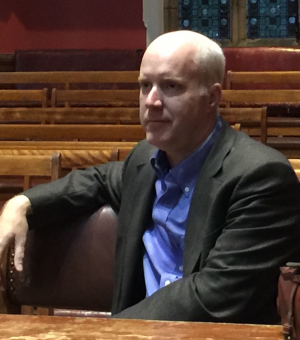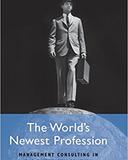Dr Christopher McKenna
I am currently University Reader in Business History and Strategy at the Said Business School, a Fellow of Brasenose College, and Co-Director of the Global History of Capitalism Project in the Oxford Centre for Global History within the History Faculty. I am particularly interested in the historical development and strategy of professional firms, and their role in shaping global business over the last two centuries. My current book project is a global history of white-collar crime from the South Sea Bubble to the present, tentatively titled Partners in Crime. In my teaching, I am piloting a series of historical business case studies, linked to the material culture of global trade, to be distributed freely online. Before coming to Oxford, I did my undergraduate degree in economics at Amherst College, my doctorate in History at Johns Hopkins, and I have held research fellowships at Yale, Georgetown, and Harvard.
Research Interests
- Global History of Capitalism
- Professionals and White Collar Crime
- Industrial and Corporate Technology
My research in on the global history of capitalism but starts with my training in the history of business and technology. Having first worked on Wall Street and taught in a business school for many years, my research is generally informed by the pragmatic concerns of managers and long-run the strategy of institutions. My eclecticism, channelled through business history, means that I have studied industrial accidents, management consultants, corporate ghost-writing, the historical transmission of managerial models, the development of the non-profit sector, and the bankruptcy of a leading newspaper among other topics.
My current research is on the global history of white-collar crime, including industrial espionage by the French in textiles, Ivar Kreuger’s Ponzi scheme based in Sweden, the development of tax havens in the Caribbean, British counterfeiting in the 18th century, nepotism and co-mingling of funds in American universities, and the ascendance of cybercrime in the 21st century global economy. My purpose is to show how successive institutional scandals led to the historical development of our system of corporate governance and the creation of new markets by professional firms.
I am also interested in pedagogical innovation, particularly embedding material culture, generally associated with museums, and (historical) case studies, generally associated with business schools, in the teaching of business and technological history. To this end, I am editing a new textbook on the global history of capitalism that will bring together the skills of graduate students from the Said Business School and Oxford’s Humanities Division via the Global History of Capitalism project. We intend to distribute these case studies online for the benefit of scholars and students around the world.
https://www.sbs.ox.ac.uk/community/people/chris-mckenna





